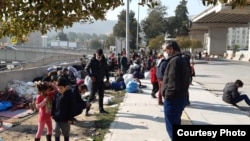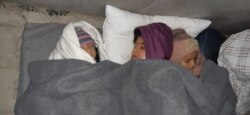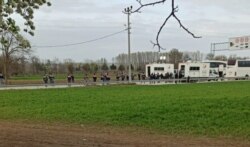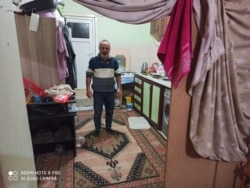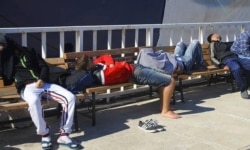After more than two weeks of forced quarantine, hundreds of refugees in Turkey have been released haphazardly in recent days, with many being left on the streets in locked down coastal areas.
Thousands more are expected to be let go in the coming days and weeks.
“A bus dropped us off near the coast,” said Samer Alahmad, 45, a Syrian refugee and father of four. “The driver told us to go find a boat to Greece.”
But what Alahmad found was more refugees. They were sleeping outdoors in the middle of a 48-hour coronavirus lockdown.
The families could neither find nor afford boats. Even if they could, Greece has been aggressively repelling refugees from its borders since late February, when Turkey announced plans to open the border to refugees trying to get to Europe.
After that announcement, as many as 12,000 refugees flocked to Turkey’s land border with Greece hoping to cross.
Greece never said it would open its side of the border, and never did. And when refugees tried to cross the small river separating the countries on boats or by swimming, Greek soldiers pushed them back with tear gas, batons and paddy wagons.
“I left Syria because of the bombings,” Alahmad said. “Then I sold all my furniture in Turkey to get to the border.”
Evacuation and quarantine
Alahmad stayed in a squalid camp by the border for 27 days. In the camp, everyone lined up for hours each day, just to get a single serving of soup and bread.
By the end of March, the coronavirus was beginning to spread in Turkey, and Turkish authorities sent buses to evacuate the camp.
Alahmad was brought to a quarantine center, where he was photographed and fingerprinted before surrendering his phone and other belongings. He was crowded into a room that was built for 20 people and holding 25. They were given cleaning materials to try to protect themselves from the virus.
Fourteen days later, he was bused to a coastal town where he and hundreds of others walked for five hours before they were arrested for violating lockdown orders, Alahmad said. Later, he was permitted to travel to Istanbul. Now, Alahmad is trying to raise the money to shelter in a family home.
“I’ve been wearing the same clothes for a month-and-a-half,” he said, adding, “I will try again to get to Europe.”
Refugees caught in the middle
Crossing into Greece from Turkey nowadays is almost impossible, according to Mohammad, a volunteer in Izmir, a city long known for being a starting point for refugees trying to cross to Europe on smugglers’ boats.
Since the beginning of the year, Greece has said clearly and often that it will not tolerate new refugees, sending military forces to back up the statements.
“I think everyone knows it. Greece won’t let them in,” said Mohammad. “But they will not stop trying.”
Greece accuses Turkey of trying to flood Europe with refugees, contradicting a 2016 statement in which Ankara said it would block refugees from Europe in exchange for aid for the roughly 3.5 million Syrian refugees in the country.
Turkey maintains that Europe has never fully delivered on the 2016 promises and accuses Greece of human rights abuses against tens of thousands of refugees detained in overcrowded and dangerous camps.
As the international community squabbles, refugees continuously risk their lives for even the hope of getting to Europe, according to Mohammad.
On Sunday night, he met about 120 refugees near the bus station in Izmir. They were sleeping on the streets after being released from quarantine.
“All of them were hungry,” he said. “Women and children were lying on the sidewalks.”
Desperation and deception
But it’s not always only desperation that makes families continue to try to get into Europe, according to Abdo Alsad, 37, a refugee from Damascus. He and about 20 other people swam across the river to Greece last month, only to be beaten, robbed and deported the following day.
In the quarantine camp, when officials told the refugees they could go to Europe or stay put, they all said, "Europe," thinking it could be possible, Alsad said.
“We thought maybe Turkey and the European Union made a deal,” he added. “And we didn’t have phones, so we had to believe them.”
Now he’s hiding out in a relative’s home, afraid he will be deported if police see him. Like most people in Turkey, Alsad wears a mask if he steps out to buy something, but he said he is not concerned about the coronavirus.




